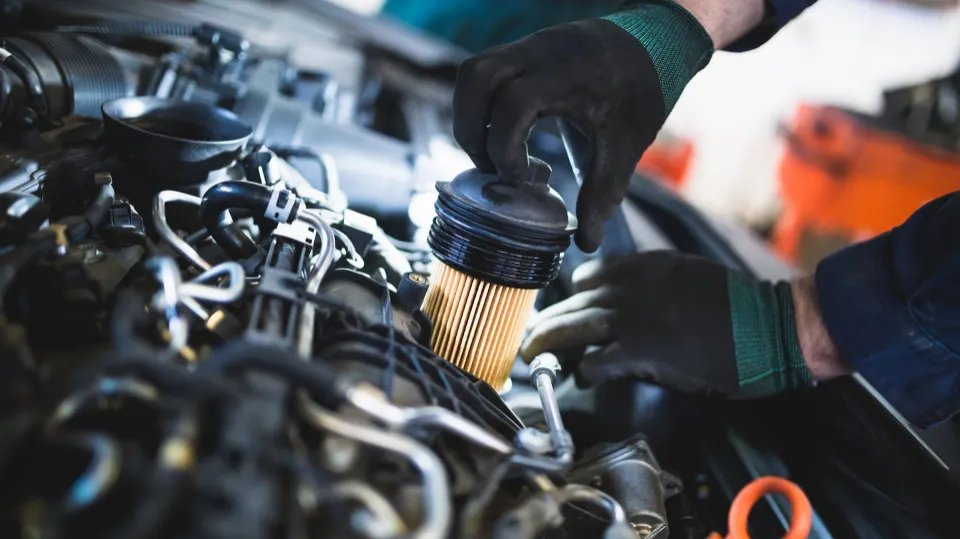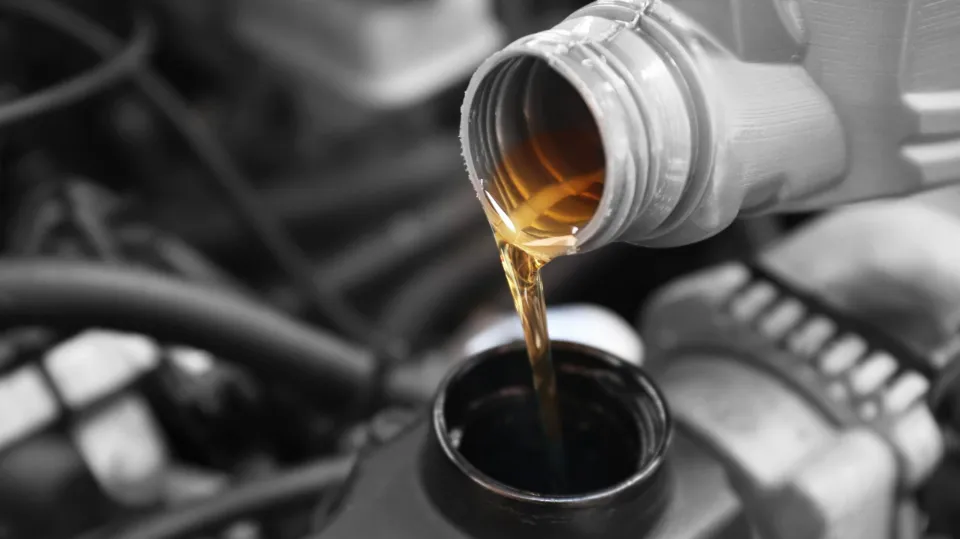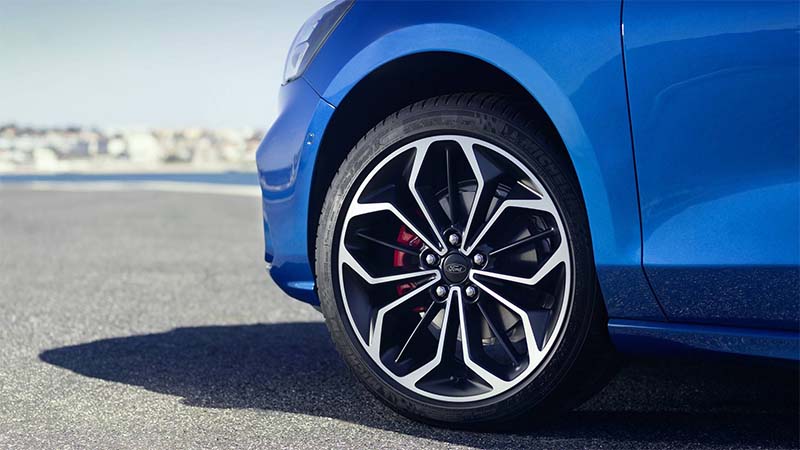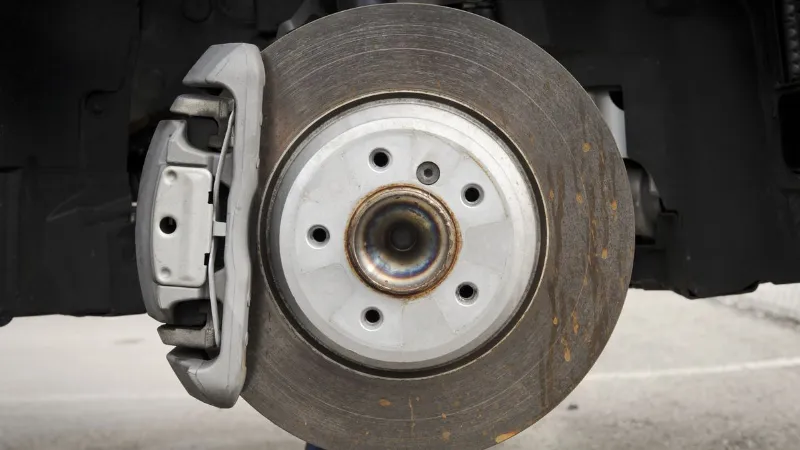How often should I change my oil filter? In the following post, we provide a list of best practices for servicing and replacing oil filters to assist drivers with proper vehicle maintenance. We also go over the functions of oil filters for engines, warning signs of clogged filters, and the necessity of routine oil filter replacement.
The question of ”how often should I change my oil filter“ has always been debatable, and it always will be because, well, it depends. Although 5,000 miles is a general rule of thumb, this will vary depending on the age, use, and manufacturer specifications of the vehicle.
If you wish to learn more, keep reading.
What’s An Oil Filter?
An oil filter is a crucial component to your engine’s operating system, and like motor oil, it must be changed at regular intervals to ensure your vehicle runs properly.
Motor oil accumulates grit and grime while circulating through an engine, and oil filters remove this dirt to ensure an engine receives the lubrication it needs. If the filter isn’t changed, these contaminants clog it, resulting in dirty, corrosive motor oil that, if not treated, harms an engine’s moving parts.

How Often to Change Oil Filter?
The frequency of oil filter changes depends on a variety of variables. Every second time you have your oil changed, many manufacturers advise replacing the oil filter. Therefore, if your filter has 3,000 miles on it, you should replace it every 6,000 miles; if it has 6,000 miles (as with most modern vehicles), you should replace it every 12,000 miles. However, there are other factors that come into play and some mechanics recommend more frequent replacement.
Every Oil Change
The old 3,000-mile cycle is a myth when it comes to newer vehicles because the majority of them are made to run on 6,000 or 7,500-mile cycles for oil changes. The majority of mechanics concur that changing the filter every time you have your car’s oil changed is just a good idea. The cause of this is that modern engines, and by extension, filters, are made to be very effective at removing particles; as a result, the filters themselves become fouled more quickly.
Service Engine Light
If you’re driving and you notice your service engine light comes on, it could be something as simple as a fouled oil filter! This light may turn on for a number of reasons, so it is always a good idea to start by ruling out the easy and affordable possibilities. Replace that filter and check to see if the issue is resolved.
Harsh Driving
You may need to change your oil more frequently if you drive harshly often, including with hard braking and acceleration, stop-and-go driving in cities, or extensive travel in adverse weather. It usually happens that your oil gets dirty quickly when your engine has to work harder. This causes your oil filter to clog more quickly.

What Does An Oil Change Include?
The oil filter and engine oil need to be changed together when having maintenance done on your car, whether it’s done by a mechanic, a dealership, or you on your own. Although you can top off your engine oil if the filter is still viable, you cannot change the oil completely and ignore the old filter. Because what goes in clean comes out dirty once the new oil passes through the used filter, draining and replacing old oil is a waste of time and energy. This is why an ordinary oil change involves more than just changing the oil.
On service forms, you’re likely to see “lube, oil, and filter” listed in the details of an oil change. An oil change service, also known simply as an LOF in mechanics shorthand, involves completely draining the old engine oil and replacing it with new oil, as well as replacing the oil filter and lubricating the chassis. Grease fittings, which are access points (such as, ball joints, tie-rods) for feeding lubricants into mechanical systems. The extra maintenance required to keep the suspension operating smoothly and quietly is provided by chassis lubrication, which is neither specific to engines nor only accessible during engine oil changes.
See also: Preventive maintenance, which includes regular oil changes, is one of the most crucial things you can do to keep it running smoothly. Looking at your jam-packed calendar, you naturally want to know: “How long does an oil change take?”
What Does An Oil Change Cost?
The price of an oil change varies, just like recommended intervals for changing the oil. Always read the small print when you see ads for $20 oil changes. These costs are typically only applicable to conventional oil and only at a particular viscosity. The oil filter and disposal costs may or may not be included in some. To be fair, oil filters are typically the least expensive part of an oil change service since labor costs, the type of oil used, and how much of it are what determine the overall price.
While you can DIY for less than $20, you should budget at least $30 for a conventional oil change and $50 for a full synthetic. These costs are on the low end of the spectrum and can be found at big-box warehouse stores, national LOF shops, and other retailers who provide automotive services. While dealership visits will cost more, they do come with extra services like tire rotations, fluid top-offs, multi-point inspections, and even a car wash. Also frequently distributed are service coupons. (This guide will go over how to wash a car at home and some frequently asked questions about best practices for washing cars in order to assist you in keeping your car clean.)
Editor’s Tips: For your car to keep running at peak performance, your engine needs the correct oil, but how much oil does my car need? The engine in your car will determine that, I suppose. Most engines require five to six quarts of fuel. Fortunately, it doesn’t have to be difficult to give your car the right amount of oil; we are here to assist.

FAQs
What Does An Oil Filter Change Include?
When you go to an auto service center or repair shop for an oil filter replacement, the oil filter, and engine oil need to be replaced together.
The situation isn’t always like this though.
If the fuel filter is in good condition, you can just add clean engine oil. But you can’t change the engine oil entirely if your oil filter is old.
Why?
Changing the old oil with clean engine oil but not changing the fuel filter is a wasted effort. Your clean oil emerges dirty and resembling old oil after passing through the used fuel filter.
The drain plug (which is typically found on the oil pan) will be removed by your mechanic in order to first drain out your old oil. After draining your car’s oil, the mechanic will then replace your old fuel filter too.
Nota: If you take your car to a dealership or auto repair shop, they might perform additional services in addition to changing the oil and fuel filter, like rotating the tires, washing the car, topping off the fluids, etc. This can add to your total repair costs.
Why Does My Oil Filter Need Regular Replacement?
Because it collects so many impurities, including grime, carbon dust, and metal particles, your engine oil filter will gradually clog up over time. The engine’s lifespan is increased and the motor oil is kept clean by changing the oil filter.
You will need new oil and an oil filter replacement because a clogged engine oil filter will reduce the amount of clean oil that passes through it.
How Do I Know When My Oil Filter Needs Replacement?
For an oil filter replacement, there is, sadly, no warning light.
Additionally, because it is a sealed metal unit, you cannot visually inspect it to determine when it needs to be replaced. (Many people don’t keep a dipstick on hand or are aware of how to use it to check the oil level.)
To identify an old, clogged oil filter, you can keep an eye out for a few symptoms. Here are some of them:
- Lack of engine lubrication
- Engine sputtering
- Metallic sounds coming from your car’s engine
- Unanticipated engine wear and tear
- Internal engine damage
- Lack of oil pressure
- Illuminated service engine light
- Black and dirty exhaust
- Car smells like burning oil
- Oil change indicator or oil pressure warning light comes on (newer cars)
Contact a mechanic or auto repair facility as soon as you notice one or more of these signs.
What Does An Oil Filter Do?
In order to prevent contaminants and metal particles from passing through the engine of the car, an oil filter keeps the flow of motor oil in check.
Without it, dirt and other minute undesirable items, such as metal particles, will freely enter the engine assembly, potentially resulting in serious damage to the engine from clogs and other debris. Your vehicle won’t move if the damage prevents moving engine parts.
Your car’s ability to use oil efficiently can also be impacted by contaminants.
Summary: How Often Should I Change My Oil Filter?
Clearly, the question of “how often to change oil filter” isn’t as straightforward as it seems. After all, there are tons of factors to consider.
However, it’s still important to change this component along with your regular oil change.
Remember, the oil filter removes grit and grime from your oil, making it an essential part of your car’s engine operations.
The good news is that oil filters are reasonably priced, allowing you to safeguard your vehicle against engine wear (and costly damage) in the future.
If you have any questions, please leave a comment. KV Auto tries to give you the best car industry information. Thank you for reading.
See also:





